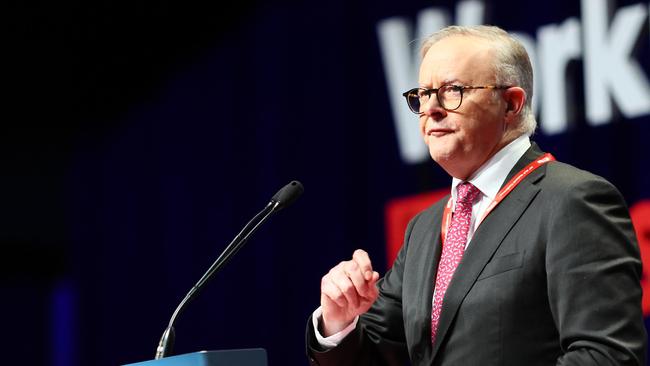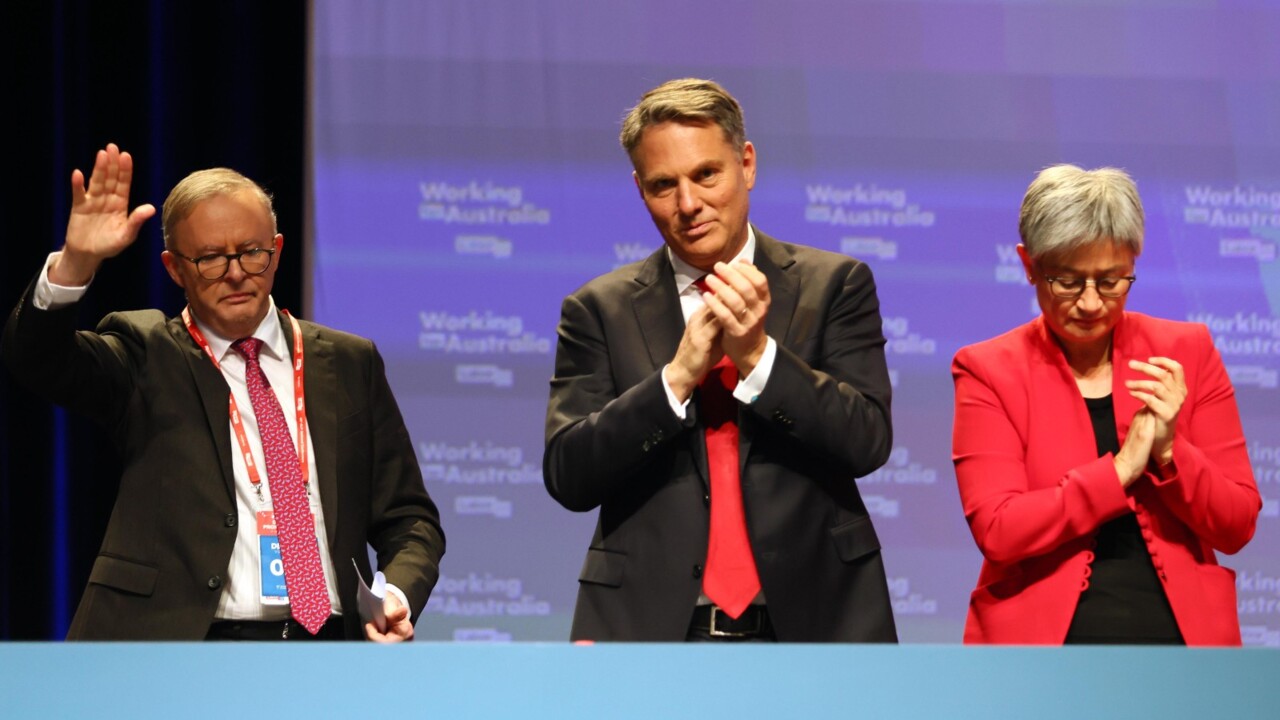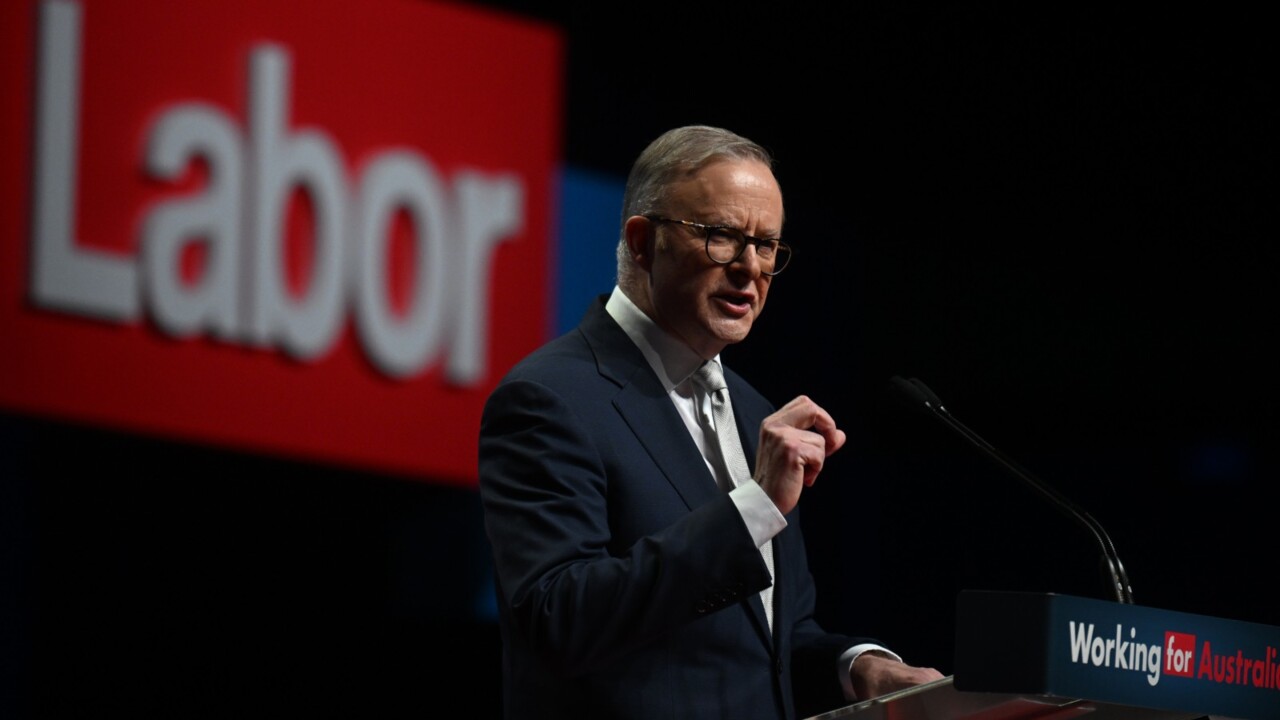
China is remaking the Labor Party today via its strategic assertion, just as Japan’s war re-made Labor in the 1940s.
In typical Labor fashion, the national conference embrace of nuclear propulsion has been sanctified with every Labor ritual – this is what Andrew Fisher, John Curtin and Kim Beazley would have done.
Nuclear propulsion has been sold to the party as a new Labor value, as the path to peace through deterrence, the vital contributor to self-reliance, industrial revitalisation and regional stability. Sections of the rank-and-file who cannot stomach these messages have succumbed before Albanese government dictum.
In moving the successful motion, Defence Minister Richard Marles put up in lights his political mission – to resurrect Labor “as the true party of Australia’s national defence”. Dismissing the Liberals as “defence dilettantes”, Marles said Australian history shows Labor, not the Liberals, as the authentic guardian of national security.
Marles knows Labor cannot commit to AUKUS and build nuclear-powered submarines without ideological and political permission – so great is the reversal from its anti-nuclear obsession originating in the 1970s. Marles aspires to rekindle the Australian culture of looking to Labor at times of strategic crisis.
The Albanese government pledged to AUKUS from day one. This week the party followed in its national conference vote on the voices. The anti-AUKUS minority interjected from the floor but staged a lost cause. The numbers weren’t counted but the government probably had a 75-25 majority among delegates.

The government has commanded the party. This is a powerful message to assure the AUKUS partners, Britain and America. Labor is not united but the executive government can proceed with a strong party mandate. Anthony Albanese was always going to win this vote but the messages and the way it happened is the story.
The public secret, of course, cannot be discussed: AUKUS was Scott Morrison’s idea and initiative. Labor now lays claim to political ownership of AUKUS. In his speech at the end of the debate Albanese told delegates he had reached a personal decision, based on advice, about nuclear-powered submarines as Australia’s future.
The personal nature of this decision is critical. Albanese’s message: he is a believer in nuclear propulsion. He embraces this as a personal decision that defines his leadership of the party. This caps AUKUS as a turning point in Labor history. A left-wing Labor PM has turned the party’s history abandoning his earlier beliefs.
It is a win for realism over nostalgia. Even a few years ago this decision would have been inconceivable.
Albanese called it seeing the world “as it is”. He said the AUKUS submarines would be sovereign to Australia, nuclear-powered, not carry nuclear weapons, and Australia’s non-proliferation obligations would be upheld. It was, therefore, an act of maturity.

In the debate Marles and Minister for Defence Industry Pat Conroy explicitly invoked China as justification for AUKUS. “In the year 2000, China had six nuclear-powered submarines,” Marles said. “By the end of this decade they will have 21. In the year 2000, China had 57 major warships. By the end of this decade, they will have 200. Now these are not our decisions. These are not our choices. But this is the world in which we live.”
It is the world that produced AUKUS.
The statement, endorsed by conference and now attached as part of the ALP platform, is titled “Enhancing Australia’s National Security” and seeks, above all, to incorporate nuclear-powered submarines as integral to Labor’s governing values.
Its philosophy is that Labor will use “all elements of our national power” to protect Australia and shape the world for the better. Diplomacy and deterrence are prime sources in this project. Defence policy is founded on sovereignty and self-reliance. The submarines will be commanded by Australian officers and under the control of the Australian government.
Significantly, the statement says Labor “will maintain the prohibition on the establishment of nuclear power plants”. Albanese is ready to fight the Coalition on civil nuclear power. Indeed, for Labor there was always a trade-off embedded in AUKUS: the price for accepting nuclear-powered submarines was rejection of any civil nuclear industry. That is a political axiom.





The Labor Party has turned on the hinge of history. In an identity renovation, Labor has become the party of nuclear propulsion – with China the key to this dramatic transformation.